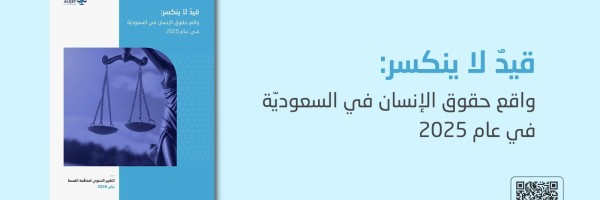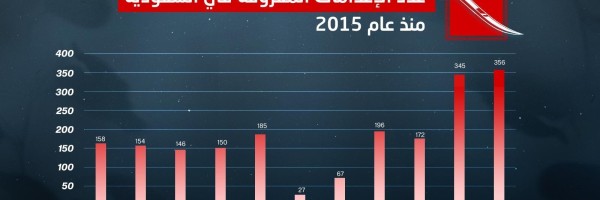Saudi human rights defenders Mohammed al-Qahtani and Essa al-Nukheifi were conditionally released this week, after years of arbitrary imprisonment on the basis of their peaceful activism and more than two years of delay since the completion of their prison terms. Although freed from prison, they continue to face lengthy travel bans, preventing them from leaving Saudi Arabia and in al-Qahtani’s case keeping him separated from his US-based family. With further releases expected in the coming days, ALQST calls on the Saudi authorities to ensure the immediate and unconditional freedom of all current and former prisoners of conscience.
On 7 January, the pioneering human rights defender and academic Mohammed al-Qahtani, a co-founder of the now-disbanded Saudi Civil and Political Rights Association (ACPRA), was conditionally released. Because of his peaceful human rights work and calls for democratic reforms, al-Qahtani had been arbitrarily detained in Al-Hair Prison since 2013, serving a sentence of 10 years’ imprisonment to be followed by a 10-year travel ban. While in prison he faced repeated harassment and ill-treatment and undertook several hunger strikes.
Instead of being released when his prison sentence expired on 22 November 2022, al-Qahtani was forcibly disappeared from October that year. The Saudi authorities failed to clarify his fate and whereabouts, provided only inadequate and misleading information, and even attempted a cover-up. He was not able to contact his family until November 2024. Now released, he remains under a 10-year travel ban, which cruelly prevents him from being reunited with his wife and five children, who all now live in the United States.
Two days earlier, on 5 January, human rights defender Essa al-Nukheifi was also conditionally released. He had been arbitrarily detained in Al-Hair Prison since 2016 as a result of his activism, and was sentenced to six-years’ imprisonment to be followed by a travel ban of the same length. Like al-Qahtani, he too was forcibly disappeared from October 2022, after declaring a hunger strike in protest over not being released when his sentence expired. In January 2023, in response to a UN communication, the Saudi authorities claimed that the reason why al-Nukheifi and al-Qahtani remained behind bars beyond the expiry of their sentences was that they were under investigation. Although now released, al-Nukheifi remains under a six-year travel ban.
The cases of al-Qahtani and al-Nukheifi are emblematic of the Saudi authorities' systematic persecution of human rights defenders and those peacefully exercising their fundamental rights. Many of the prisoners of conscience released in recent years continue to face heavy restrictions, notably travel bans that prevent them from leaving the country. As with al-Qahtani and al-Nukheifi, such bans are normally imposed in advance as part of their judicial sentence, usually for the same additional length of time as the prison term itself. The authorities also impose “unofficial” travel bans without any notification or legal justification, such as a judicial ruling or official decision, and have increasingly been placing arbitrary travel bans on family members of activists. Further releases of prisoners of conscience are expected in the coming days as they complete their prison terms. They must be released unconditionally, without the imposition of further restrictions on their freedom such as travel bans.
ALQST’s Head of Monitoring and Advocacy Lina Alhathloul comments: “The release of al-Qahtani and al-Nukheifi is extremely welcome, if long overdue, and follows years of grave violations of their rights. It’s also a testament to the tireless campaigning of their family members, as well as everyone who has taken a stand worldwide in their support. They must now be released from these cruel and vindictive travel bans that deny freedom of movement and tear families apart. All such bans must be lifted.”
ALQST urges the Saudi authorities to lift the travel bans imposed on Mohammed al-Qahtani and Essa al-Nukheifi and all current and former prisoners of conscience and their family members. The authorities must respect and protect the internationally recognised right to freedom of movement.




